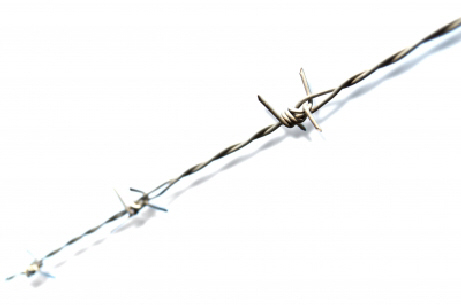
Gates scholar Bill Schmidt is researching the causes of wrongful convictions.
Why are some people wrongfully convicted of crimes and can the criminal justice system be improved to prevent innocent people being locked away?
Gates scholar Bill Schmidt [2009] believes his research could help pinpoint particular risk factors for wrongful convictions and so reduce their number.
He says most of the research on wrongful convictions is based on US data, but he has discovered a relatively untapped source in the Criminal Cases Review Commission which covers England, Wales and Northern Ireland.
Born in Smithfield, North Carolina, and brought up in Richmond, Virginia, Bill came to criminology through his interest in psychology and the brain.
Brought up by his mum, a school teacher who emphasized the value of education, his interests at school were varied. Early on at high school, however, he was involved in a mock trial programme.“Our team did pretty well,” he says. “I got to argue in front of the Virginia Supreme Court.” It gave him a taste of the legal system. Also at school, he did research on brain trauma as well as on cell differentiation in zebra fish. This ignited his interest in neuroscience.
When William started at Yale, majoring in English, he took a variety of classes, but found Psychology the most interesting.
He took a class called perspectives in science and won a fellowship to work over the summer in a science lab doing research on brain imaging. His interest at this point was in neuroscience, but through this he became interested in other aspects of psychology, including law – a class in psychology and law had a big impact, he says.
Other undergraduate experiences which made a lasting impression included a 2007 trip to Argentina. Bill spent the summer working for a law firm in Argentina doing international business law. Because the firm was small and he was the only native English speaker, he got to do a lot of work which he would not have done in a larger organisation.
In addition, his last summer was spent collecting data for his undergraduate thesis which focused on a programme targeted at people who had been in prison and had serious mental health problems. He interviewed people involved with the programme and investigated whether treating their social and medical problems would reduce the incidence of them spending their lives going in and out of prison.
As he was finishing his degree in English and Psychology, he decided to do something more applied and interdisciplinary. He was keen to study abroad and the Criminology programme at Cambridge was very strong and put an emphasis on the kind of research methods he was interested in. “The researchers at the Institute of Criminology are interested in psychology and have applied that interest to crime,” he says.
He applied for a Gates scholarship and came to Cambridge in 2009 to do an MPhil in Criminology. He had intended to return home afterwards to do some practical, hands on work, but discovered the Criminal Cases Review Commission, which he did not have time to analyse properly in just one year so he applied for a PhD. “It was a great opportunity,” he says. “A lot of the research on miscarriages of justice comes from the US where the criminal justice system is so big.” He thinks one of the reasons little research has been done in the UK is that the Commission was only set up in 1997 and is relatively young.
For his research he is looking at issues such as the number of cases which were referred to the Court of Appeal and how many were quashed. “That does not necessarily mean they were innocent, but it is an imperfect proxy,” he says. He puts all the information in a spreadsheet and codes it according to whether the victim was a child or a family member, how long there was between the crime and the trial and other potential factors.
He is looking to find out if there are particular risk factors for wrongful convictions so that the judicial system can be improved. “The most important thing is to identify what the greatest causes of wrongful conviction is,” he says.
For his MPhil he looked at murder cases. For his PhD he is looking at a much broader spectrum of cases.
He hopes to apply to law school after completing his PhD.
Picture credit: bulldogza and www.freedigitalphotos.net












